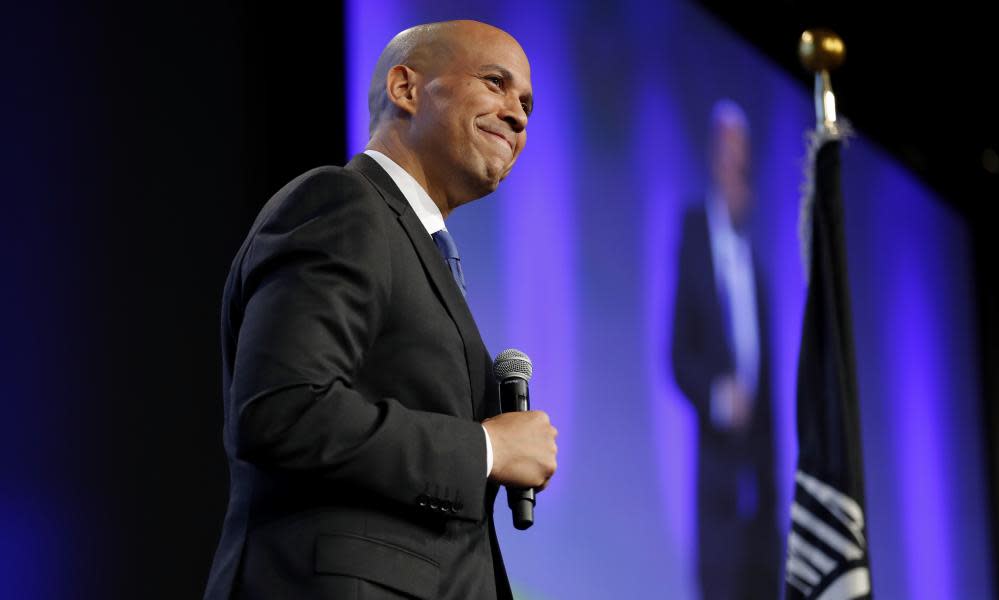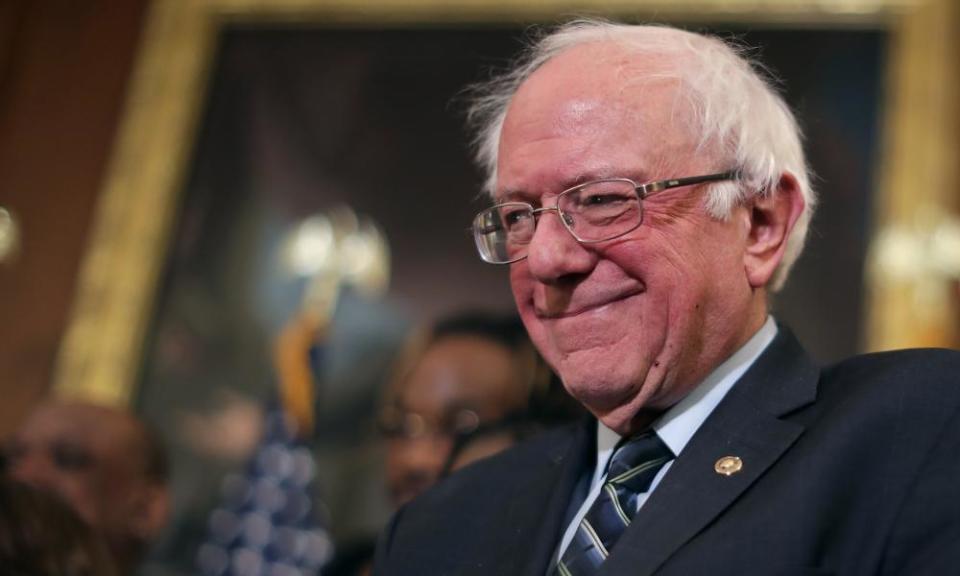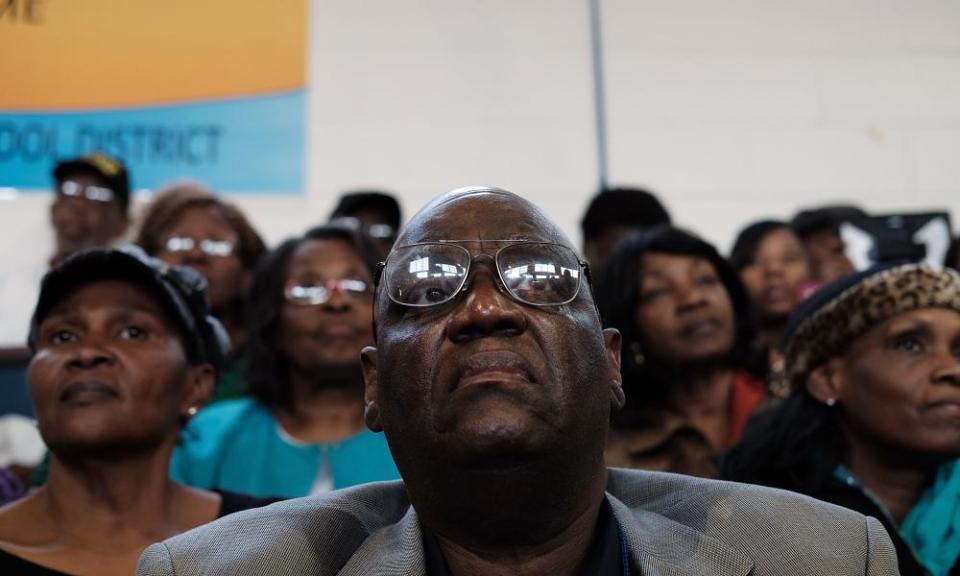Democratic 2020 hopefuls head south – where black voters hold the key

Likely presidential hopefuls Bernie Sanders and Cory Booker will be in South Carolina on Monday, marking the Martin Luther King holiday at competing events in the first southern state to hold a primary in 2020. Booker will speak at a rally at the statehouse; Sanders is hosting a town hall in Columbia.
Ostensibly, the politicians are on hand to celebrate the life and work of the civil rights leader. But for both, this is an opportunity to speak candidly about race to black voters who will play a gigantic role in selecting the Democratic nominee.
“The Democratic nomination runs through the south,” said Seth McKee, a political scientist at Texas Tech University. For Democrats, “the south” has rapidly come to mean one thing more than anything else: the black vote. Black Americans now make up about 60% of Democratic voters in South Carolina.
“When southern black voters unite behind a Democratic candidate, the South becomes a formidable firewall that is hard to overcome for any candidate who performs poorly among this group,” McKee wrote in a study of the 2016 election.
Don’t take it for a fact that black voters are going to blindly vote for another black person just because they’re black
Jamira Burley
How such votes are best earned remains up for debate. Speaking clearly and forcefully about civil rights on big stages is certainly part of the equation. But so is how black voters perceive a candidate’s electability, and a knack for retail politics.
“Any candidate who wants to appeal to black voters is going to have to put real money into engagement, spend time meeting with organizations that represent their interests, listening to them, and allowing that feedback to actually impact their policy platform,” said Jamira Burley, an engagement strategist for Hillary Clinton in 2016.
That, she said, was a big part of why Clinton performed so well with black voters, beating Sanders by a whopping 47 points in South Carolina and racking up similar victories throughout the south, even as Sanders took several unexpected wins in the midwest. Throughout the contest, many commentators saw the south as Clinton’s own “firewall”.
In 2004, Mississippi was the only majority-black Democratic electorate in the south, and indeed the US. But as southern whites have continued their generations-long exodus from the party, the Democratic vote has become majority black through huge pockets of the region.

In four of the five “deep south” states – Mississippi, Georgia, Alabama and South Carolina – black voters cast a majority of Democratic votes in 2016, according to McKee. The study did not contain data from the fifth state, Louisiana, but it’s likely black Americans made up a majority of Democratic voters there too.
McKee and Burley both say black women especially hold the key to the south. McKee points to the fact that black women are disproportionately likely to vote.
Burley adds: “Women, particularly black women, are able to influence the men in their lives and the people that they’re surrounded by. What I saw on Hillary’s campaign is that you had little old ladies making sure that their grandsons and their brothers and their husbands were going to the polls with them.”
‘We are extremely strategic’
This time around, Sanders is likely trying to gauge whether he can hit the reset button with black voters after his inability to woo them became a dominant narrative of 2016. As Syreeta McFadden wrote in the Guardian, the prevailing wisdom was that the disconnect was emblematic of a history in which “the white left in America has often asked black America to subordinate the fight against racism for a collective struggle against class divisions”.
Theodore Johnson, a fellow at the Brennan Center for Justice who studies black voting behavior, said Sanders still faces an uphill climb.
“I think people know who Bernie is, especially in South Carolina,” he said. “I don’t know that he’s going to outperform what he did four years ago.”
For Johnson, both messenger and message hamstring the Vermont senator with black voters. The problem may be, in part, that Sanders’ platform is too progressive.
Black voters tend to hold more conservative views than white progressives in the Democratic party, especially in the south.

Johnson said: “If the thinking is, for white candidates in particular, ‘The further left I go, the more black voters we’ll win?’ That’s bad thinking and they need to fire their black outreach person and start over.”
Black voters also tend to be more pragmatic about what kind of candidates and policies have a realistic chance of winning an election or passing into law, and are more inclined to go with the safe bet. Johnson points to the fact that in 2008 Clinton actually outpolled Barack Obama with southern black voters until he won in the Iowa caucus, demonstrating his candidacy wasn’t a mere liberal fantasy.
Obama has cleared that hurdle – the apparent impossibility of a black presidency – from Booker’s path. But neither the New Jersey senator nor California senator Kamala Harris, who is expected to announce her own run on Monday, can expect to monopolize the southern black electorate based on identity alone.
“Don’t take it for a fact that black voters are going to blindly vote for another black person just because they’re black,” said Burley. “We are extremely strategic. We we want to elect someone who actually cares about our population and our communities beyond just reflecting our own identity.”
According to McKee, Booker and Harris may also face skepticism from southern blacks over their coastal zip codes.
“They’re not southern and they don’t have any connection to the south, so maybe there’s an inroad for [Texas congressman Beto O’Rourke] because of that,” McKee said. “But then again, if Booker and Harris can connect culturally, if not regionally, then they have a really good chance, especially with a majority black or deep south electorate.”
Other announced or contemplating presidential contenders will also attend MLK day events, including former vice-president Joe Biden, who will speak at the National Action Network’s annual King breakfast in Washington with founder Rev Al Sharpton and Martin Luther King III.
New York senator Kirsten Gillibrand, who jumped into the race this week, will appear with Sharpton later in the day in Harlem.

 Yahoo News
Yahoo News 
